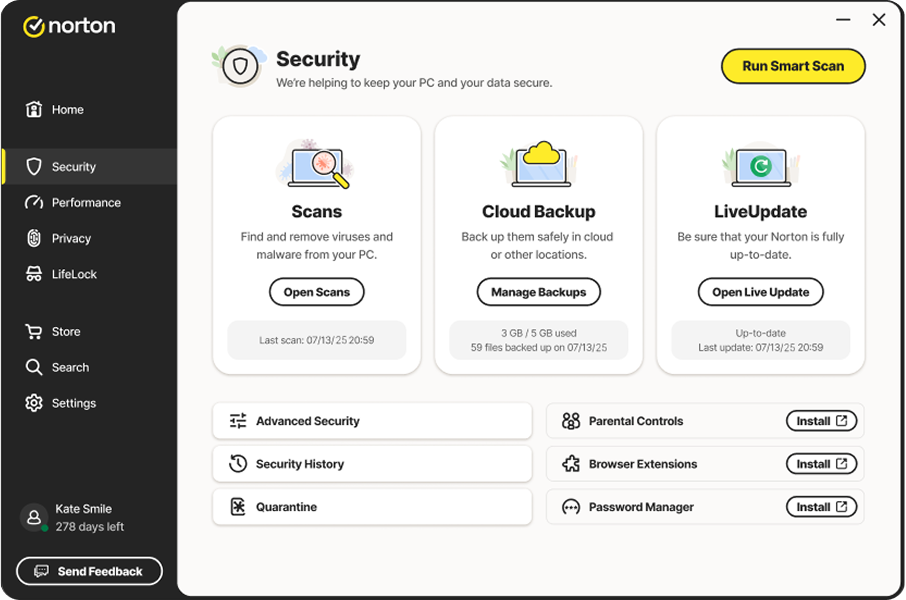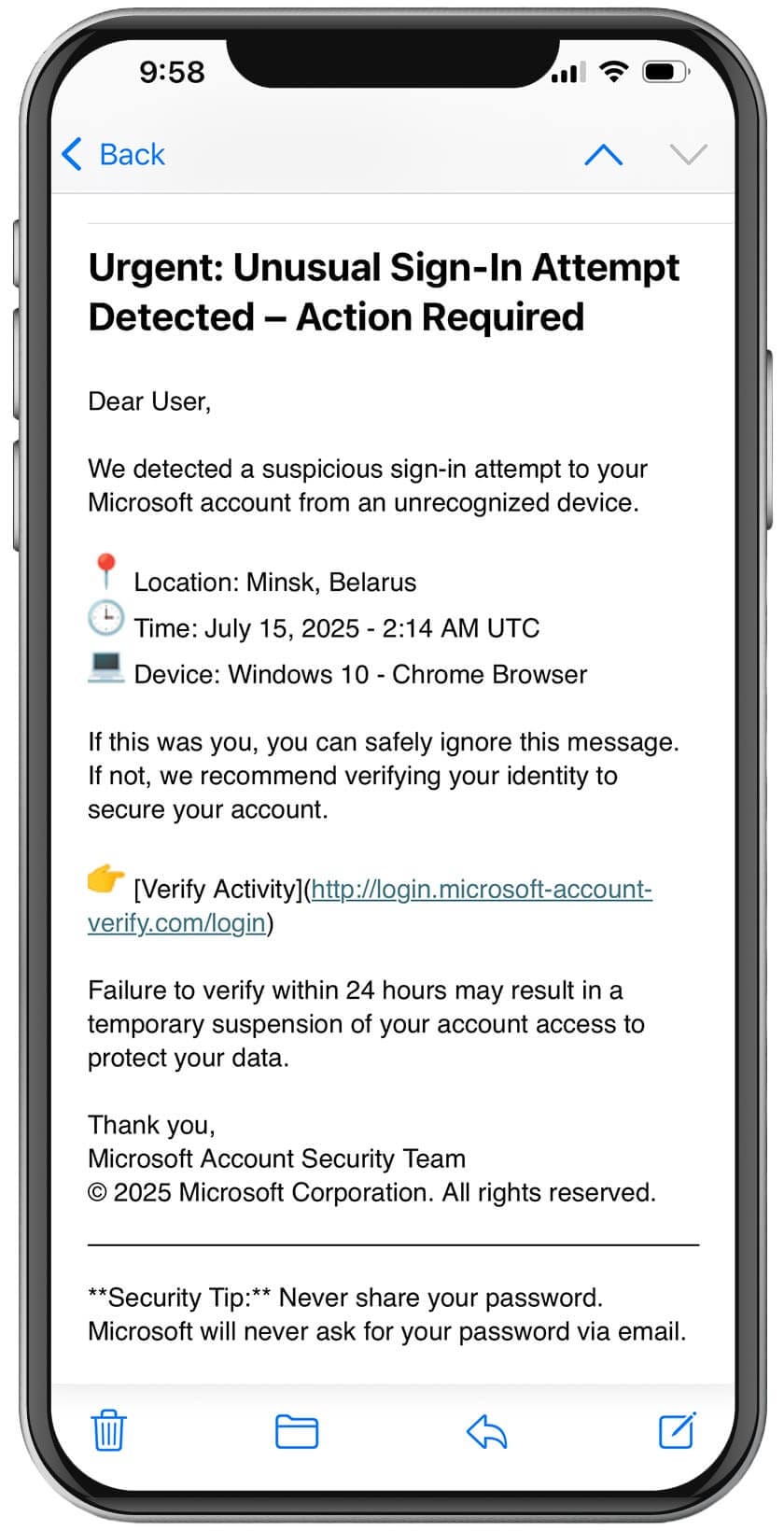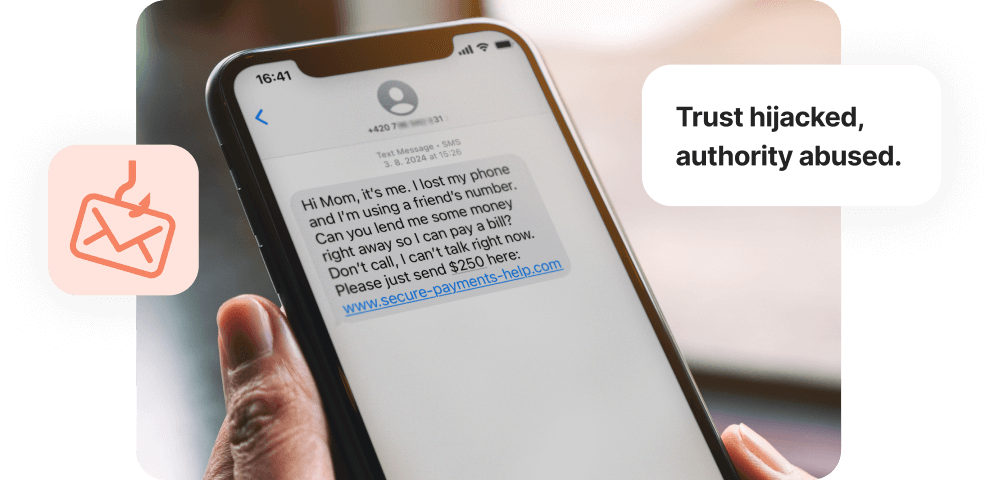Scammers have many tactics, but most follow familiar playbooks. Whether they’re internet scams or offline ploys, they often fall into recognizable categories. Knowing what to expect — and what each scheme typically looks like — makes it easier to spot trouble early and respond with confidence.

Scam-proof your digital life
Scams are everywhere, and evolving fast. From fake texts and phishing emails to AI-generated voice calls, today’s tactics are precision-engineered to confuse, pressure, and isolate you. Norton is here to change that.
We’ve brought together all the go-to reads you need to spot scams, avoid tricks, and stay safe, calm, and in control.
What do scam messages look like?
Scam messages are designed to look familiar and trustworthy. They often copy the branding of real companies to lure you into a false sense of security, and then create false urgency to push you into quick action.
Common tricks include alarming subject lines, fake account alerts, or requests to “verify” sensitive information. These tactics play on fear or curiosity, making it harder to pause and think before reacting.
Some scams hide malicious links behind urgent prompts, while others dangle fake rewards or threats of account suspension. Swipe through real examples of scam emails and texts to learn how to spot the subtle clues before it’s too late.
Read more about scam safety

Get a Norton 360 free trial
Try comprehensive device security with built-in AI-powered scam detection, antivirus, and VPN access for free.
What are the main types of scams?
How to outsmart a scammer
Staying safe starts with slowing down. Scammers rely on panic and impulse, so take a moment before clicking links, sharing details, or sending money. Verify requests through official channels, double-check senders, and trust your gut; if something feels wrong, it likely is. A little caution can stop many scams cold.
For extra protection, use a free AI-powered scam detector to help spot suspicious messages in seconds.
Scams to watch out for

What is vishing? Tips to spot and avoid voice phishing scams
Explore more topics
Discover expert advice to help you stay secure and informed.





















Want more?
Follow us for all the latest news, tips, and updates.